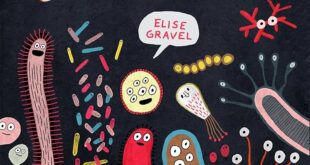Umma’s Table by Yeon-Sik Hong and released in English by Drawn+Quarterly tells a poignant tale all too familiar in a palatable way that makes it fresh. It has always been part of life for the younger generation to see their parents, who had always been the care-givers, come into the stage of life needing care, but it is especially seen today worldwide as the collective post-war generation grows older. Many nations are seeing the surge in young people coming up, but the older folks do not simply disappear. They fade in a way that changes all of us when we recognize it.

Hong received critical acclaim for his previous graphic novel, Uncomfortably Happy, telling the autobiographical story of moving with his partner to a rural home. Umma’s Table picks up in the countryside existence, serving as something of a sequel while being completely standalone. The most obvious change is the shift from human cartoons to the characters being anthropomorphized cats. Like Art Spiegelman’s use of mice for the Jewish people in Maus, the fun turn allows the reader to dive into the great emotional depths of the story that might weigh too much otherwise. A spoonful of sugar helps the medicine go down, of course.
Umma’s Table uses food to frame the story of Madang shifting his new life in the country away from the remains of his old in the city. Central to everything is kimchi, the fermented vegetable dish quintessential to Korean cuisine. Hong spends great care to show the exact steps of making it in huge batches so that it can be eaten all winter long. There is no shortage to dishes in its versatility: kimchi fried rice, minced kimchi in bibimbap, kimchi pancakes, or kimchi with rice, in soup, or a spicy stew. Madang’s memories of cooking with his mother as a child and even into adulthood reflect on his challenges as his parents, too, need attention.
Madang works to provide for his young family with building a garden and monetarily with cartooning. He struggles with his weight, looks to save money in the winter by not heating the kitchen and cooking in the cold, and makes time enough in the day by skipping sleep. Things become even more of a struggle as his mother’s health fails, leading to expensive hospital stays where Madang and his brother trade off being at her side.
The situation with Madang’s mother (“umma” in Korean means the familiar term “mom” or “mommy”) deteriorates living in an underground apartment with her husband nearly crippled by a lifetime of alcoholism. Madang, who left home young to escape, battles with himself trying to find a balance of providing for his mother after she did everything she could to provide for him as a child while still keeping his new home free from the shadows of his youth. It is a powerful exploration in a story so real while maintaining its cartooniness that lends to even deeper meaning in the imagery of cars driving through the air into endless night and conversations leaping between time and place.
 Blogcritics The critical lens on today's culture & entertainment
Blogcritics The critical lens on today's culture & entertainment




